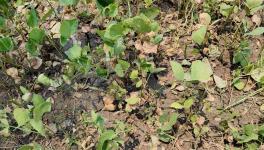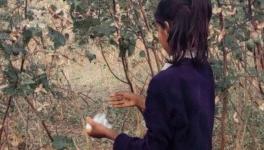MP Tribals can Sell Mahua-Made Liquor in New Liquor Policy, Announces CM Chouhan
Bhopal: Eyeing tribal votes in the upcoming bypolls in three Assembly seats and a parliamentary seat, which have sizeable tribal voters, Madhya Pradesh Chief Minister Shivraj Singh Chouhan on Tuesday made two major announcements; To make amendments in the liquor policy to grant licenses to tribals to sell and consume liquor made from mahua and withdrawal of petty cases against tribals, which are not of serious nature.
The CM made the above announcements during the ‘Janjatiya Sammelan’ organised in Jhabua, neighbouring Alirajpur district where a bypoll on Jobat Assembly seat (Scheduled Tribe) is due on October 30. The bypolls are also due in Raigaon (SC), Prithvipur and the parliamentary seat Khandwa.
“Tribals will be able to sell mahua and toddy. I don’t support alcohol but if tribals make or drink alcohol for the sake of tradition, then there is no harm in it,” said Chouhan, adding that in "vanvasi samaj (among forest dwellers), there is a need for liquor on many occasions like birth, death, and worshipping as it’s a part of the tribal culture. To maintain the culture and tradition of tribal society, permission will also be given to make liquor from mahua and no police case would be registered against them. To make this happen, a new liquor policy will be drafted."
He further said that in many petty cases, tribals have to visit courts. “So, cases, which are not of serious nature, will be withdrawn.”
To curb hooch cases, the Madhya Pradesh cabinet on August 3, 2021, passed an amendment in Madhya Pradesh Excise (Amendment) Bill, 2021 which has a provision of consumption, manufacturing and sale of 'Heritage liquor' made by tribals using mahua. But the definition of heritage liquor and the issue of giving license to sell mahua liquor are yet to be finalised, as per senior officials of the State Excise Department.
"The drafting of New Liquor Policy is underway. The term Heritage Liquor has been introduced in the new draft to legalise the consumption and sale of mahua-made liquor for tribals as announced by CM Chouhan. But the definition of Heritage Liquor and the issue of giving licensing are yet to be finalised," Deepali Rastogi, Principal Secretary, State Excise Department, told NewsClick.
In relation to the issue of withdrawing petty cases against tribals, according to a recent study, over 64% of cases registered under the Excise Act, 1915 between January 1, 2018, to December 31, 2020, in three districts -- Bhopal, Jabalpur and Betul -- are against Scheduled Castes (SCs), Scheduled Tribes (STs) and nomadic and semi-nomadic tribes. The study was done by the Bhopal-based Criminal Justice and Police Accountability (CPA) Project.
The report carried out an analysis of the social locations of the individuals criminalised in 394 FIRs, pertaining to desi liquor possession within the 1–10 litre range and revealed the following: the accused in 67 FIRs belonged to the SC community, the accused in 76 FIRs belonged to the ST community, 51 FIRs belonged to Vimukta communities and 73 FIRs belonged to the OBC community. 15 FIRs criminalised Possibly Marginalised individuals, 36 FIRs criminalised General category individuals and 76 FIRs criminalised individuals who are maybe General. Therefore, at least 282 FIRs involving desi liquor in the 1-10 litre range criminalised marginalised community members.
The report further reveals that among 540 total FIRs, 33% are related to mahua liquor. The majority of individuals accused under the Act are not big liquor mafias but individuals carrying small bags of desi alcohol who hail from marginalised communities. The study also shows that in 25% of the cases of mahua liquor, the accused were found in homes or other private spaces, leading to over-criminalisation of the Adivasi personal space.
"The study of FIRs reveals that the colonial Excise Law, 1915 has failed to stop the established liquor mafias in the state but is being used to target community members of SC, ST, nomadic and semi-nomadic tribes who make their traditional liquor (Mahua) in small quantities," said Nikita Sonavane, Co-Founder of the CPA Project and a lawyer.
Commenting on CM Chouhan's announcement, she said, "Both the announcements made by CM Chouhan are welcoming. But, they look more like poll announcements as the road map to legalise the sale of mahua-made liquor is yet to be finalised and there is no clarity on how the Government would withdraw the cases against tribals."
Congress did not implement PESA Act, 1996 in MP: Chouhan
Coming down heavily on the Congress government, Chouhan announced the implementation of provisions of the Panchayats (Extension to the Scheduled Areas) Act, 1996 or PESA in tribal areas to protect and conserve community resources.
MP has 89 tribal dominated blocks and tribal leaders have been demanding the implementation of PESA in those blocks for years.
Chouhan said, "Late Shri Dilip Singh Bhuria of Jhabua played an important role in the making of the PESA Act. This Act was passed in 1996 but was not implemented by the then government, but our government will implement it. It is not against any community, it will be implemented with social justice and harmony. The people of the village will decide the development of the village. The money of the village will be spent in the village itself."
Chouhan had made similar announcements on September 18 this year in Jabalpur when Home Minister Amit Shah had visited the city to take part in an event.
To lure tribal voters ahead of bypolls, the CM has not only made alluring announcements but also danced with tribals on their traditional drum music. He also announced the celebration of ‘Janjati Gaurav Divas’ on the birth anniversary of Birsa Munda (Indian freedom fighter) on November 15, while ‘Jhabua Utsav’ will also be celebrated once every year.
Get the latest reports & analysis with people's perspective on Protests, movements & deep analytical videos, discussions of the current affairs in your Telegram app. Subscribe to NewsClick's Telegram channel & get Real-Time updates on stories, as they get published on our website.
























